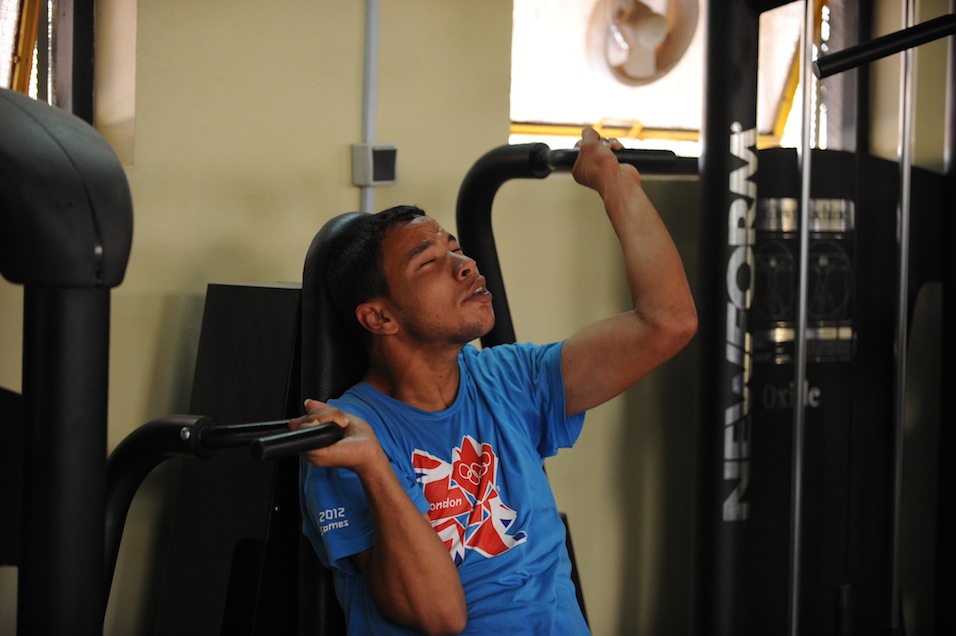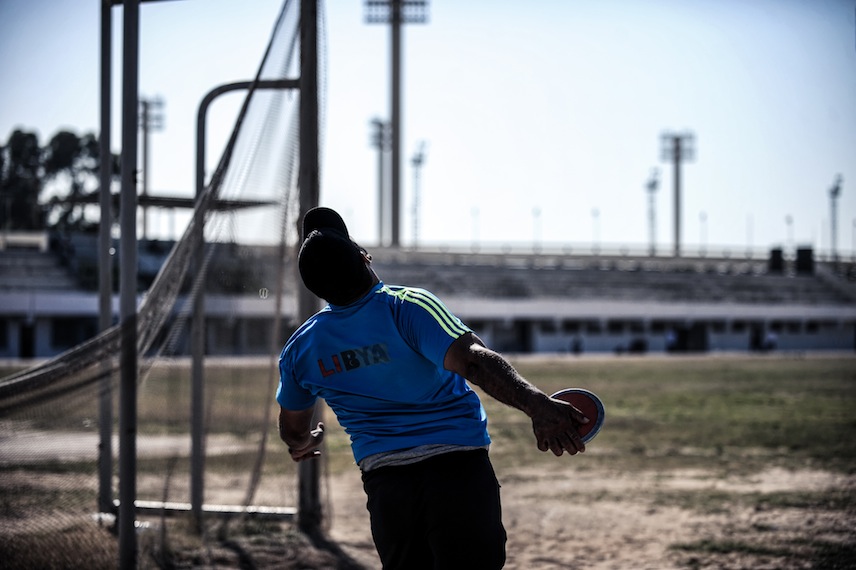By Ibrahim A. El Mayet.
Tripoli, 26 August:
Following the success of the 2012 London Olympic games, ticket sales for the Paralympics have . . .[restrict]been the highest in the history of the competition, and crowds are expected to reach capacity as London counts down to the opening ceremony on Wednesday, 29 August.
For Libyans, both at home and abroad, the Olympics were particularly special as they tuned in to watch the opening ceremony, waiting for the team to emerge carrying the tricolor flag which represents their hard won freedom. In a different way, the Paralympics will also have a special significance given that so many thousands died and countless more remain permanently disabled as a result of their injuries during the revolution.
At the headquarters of the Libyan Paralympic Committee (LPC) in Tripoli, the weeks and months preceding the games have been extremely busy. The LPC has been inundated with applications from youngsters injured in last year’s conflict desperate to represent Libya at the London games. It had been hoped to field a team of six. They had been preparing for the games at their training camp in Morocco. However, due to funding and administrative issues it was not to be. There are just two to represent Libya in London — but there has been a surge in interest focused on both of them.
Libya’s Paralympic duo Hamza Al-Hamali, 25 and Abdulrazag Baaba, 38 arrived in London on Thursday ready to take on the world as free Libyans.
Baaba, a power lifter, is a seasoned competitor winning a silver medal at the 2009 world championships in Malaysia and taking the gold medal at the 4th Fazza International Games earlier this year in Dubai. However, London will be his first paralympics. He hopes to beat his personal best of 130 kg. He won’t say what he has been lifting in training but has revealed that he hopes to try for 170kg in at the games!
Also competing in his first paralympics and visiting London for the first time, Hamali, who will represent Libya in the seated baton throw, only took up the sport in 2010.

He and the athletics team attended a training camp in Morocco while Baaba has been completing his pre-games training in London.
For both the lack of facilities in Libya has been a major limiting factor. Joining the team at their final training session in Tripoli’s Sports City, a complex build the late King Idris in the 1960s, the condition of the decaying facilities did not seem to dampen their spirits. After a session in the small gym, a beaming Hamali dressed in London 2012 T-shirt and track pants was first into the field. Watching him striding across the unkempt grass in the vacant expanse of the facility was striking.

Despite the inherent challenges of his condition — cerebral palsy — Hamali’s positive attitude, strong work ethic, engaging manner and boundless energy are immediately infectious and he is a popular with both his team mates and their coaches. After a hard training session under the hot afternoon sun Hamali, reflecting on his upcoming trip to London, expressed his desire for more Libyans with disabilities to be given the chance to take up sport.
At the LPC headquarters, the chairman of the committee, Khaled Rgibi, and his colleague Nadia El-Malouf were making the final preparations for their trip to London. Rgibi who has headed up the LPC since 1998 smiled at the prospect of his first visit to London. As well as the two athletes, Libya is also sending three international referees to the games. Rgini is confident that global reach of the games will give a real boost to paralympic sport in Libya which received little attention and virtually no funding under the Qaddafi regime.
Under it, disabled people were severely neglected — very few public buildings even now provide wheel chair access and little state assistance was provided to cope with disabilities and develop opportunities. Disability was often the cause of shame to families and individuals who were forced to live on the sidelines of society.
El Malouf, herself disabled, feels that the situation is different now that Libya is free. Things are beginning to change, she says. The committee has been working hard to raise the profile of disabled athletes ahead of the London games. She feels very strongly that their participation in London will have positive outcomes for disabled people in Libya.
The historic lack of support and funding meant that the LPC had to resort to its own means to fund activities and attend competitions. With a business background, Rgibi, who studied business management and worked for many years at Tripoli Harbor for the National Ports Company, helped set up companies to finance the committee, including a rock crushing plant and a car import business. Receiving virtually no funds from the government, the LPC was dependant on profits from these businesses and some donations.
But things are beginning to change, too with funding. Unlike Beijing 2008, where the paralympic team received virtually no state funding and competed almost as independents, they have received a budget of LD 300,000 for the year in 2012. But they asked for LD 3 million. The funds they received are essential for their participation in London.
However, if their future ambitions of engaging more disabled people in sport, improving facilities and equipment for current sports, including wheelchair basketball, seated volleyball, swimming, tennis and goal ball (for the blind), and developing new sports like wheelchair athletics and rowing are to be fulfilled, then it is clear that more funding will be required.
The Paralympic Games start on 29th August and last until 9 September. Hamali will be competing in the athletics on 31st August and Baaba will be competing in the power lifting 82.5Kg category on 4th September. The Libyan Paralympic Committee will also be sending three officials to the games: International power lifting referees Fathi Lashab and Mohamed Alakari, and seated volleyball referee Khaled Shensha.
[/restrict]







